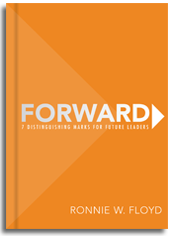I rarely pay attention to American presidential campaigns because they continue non-stop and the candidates so often act like immature kindergarteners, with sweeping statements, nastiness, part-truths and mutual character assassinations. Sometimes entire groups of voters—like the elderly, Hispanics, or millennials–are described in simplistic and inaccurate ways. That includes evangelical voters. I rarely identify as an evangelical any more. My theology remains firmly evangelical: It has not changed. But it’s embarrassing to be grouped with people who share my beliefs about God but whose words, actions, and political views are so different from mine.
 Last week a CNN reporter published his study of the evangelical sub-culture and identified seven groups, at least in the United States. If you identify as an evangelical in theology, do you fit among the following?
Last week a CNN reporter published his study of the evangelical sub-culture and identified seven groups, at least in the United States. If you identify as an evangelical in theology, do you fit among the following?
- The Old Guard. These people–James Dobson and John Hagee are examples–believe the US is and should remain a Christian nation. Many are highly involved with right wing conservative politics.
- Institutional Evangelicals like Rick Warren head megachurches, charities seminaries and evangelical organizations.
- Entrepreneurial Evangelicals (Jerry Fallwell Jr. or Kenneth Copeland) often have big ministries, television outreaches, and schools all built on good business models.
- “Arm’s Length” Evangelicals such as John Piper and Timothy Keller “talk more about Jesus than about politics.” They avoid political activism and focus more on “feeding the believers” and on charity.
- Millennial Evangelicals (Eric Teetsel, Jordan Sekulow and Jonnie Moore) grew up under the old guard and tend to be politically conservative, but they are less opposed to same-sex marriage or environmental regulations, and they are friends with people who don’t accept their views.
- Liberal Evangelicals are best represented by Jimmy Carter or Jim Wallis.
- Cultural Evangelicals say they are born again and accept evangelical theology but they rarely go to church. They are like nonreligious Jews who still identify as Jewish.
A recent report from the National Association of Evangelicals defines evangelicals as those who strongly believe that:
- The Bible is the highest authority for what we believe.
- It is very important for us personally to encourage non-Christians to trust Jesus Christ as their Savior.
- Jesus Christ’s death on the cross is the only sacrifice that could remove the penalty of my sin.
- Only those who trust in Jesus Christ alone as their Savior receive God’s free gift of eternal salvation.
What is your reaction? How much does it matter? Please comment.

 one-time Oregon resident and husband of a native Oregonian, I relished Piper’s descriptions but I was especially interested in her perspectives as she approaches the end of her career. Now almost 70, she has no plans for the future. Instead she tries to be “present for my life every day.” Quoting two poets she writes, “I’ve been where I’m going…. I’ve got a tiny future and a great big past.” Piper concludes that being her age is “a place to rest in the September sun before the cold and darkness come.”
one-time Oregon resident and husband of a native Oregonian, I relished Piper’s descriptions but I was especially interested in her perspectives as she approaches the end of her career. Now almost 70, she has no plans for the future. Instead she tries to be “present for my life every day.” Quoting two poets she writes, “I’ve been where I’m going…. I’ve got a tiny future and a great big past.” Piper concludes that being her age is “a place to rest in the September sun before the cold and darkness come.”
 e to do most of our coaching. Have you noticed how you have fallen into some specialties, perhaps because of how others perceive you or how you identify yourself? For me, that’s helping others go through transitions, finding new life or career directions, adjusting to unanticipated change or making progress in reaching their God-given potential. I’ve been going through some of this personally right now so I appreciate the challenge of shaping the future and not being swept up by the expectations or perspectives of others. How, then, can we help ourselves and our clients shape their futures? Here are some suggestions. I know most of you will think of others.
e to do most of our coaching. Have you noticed how you have fallen into some specialties, perhaps because of how others perceive you or how you identify yourself? For me, that’s helping others go through transitions, finding new life or career directions, adjusting to unanticipated change or making progress in reaching their God-given potential. I’ve been going through some of this personally right now so I appreciate the challenge of shaping the future and not being swept up by the expectations or perspectives of others. How, then, can we help ourselves and our clients shape their futures? Here are some suggestions. I know most of you will think of others.



